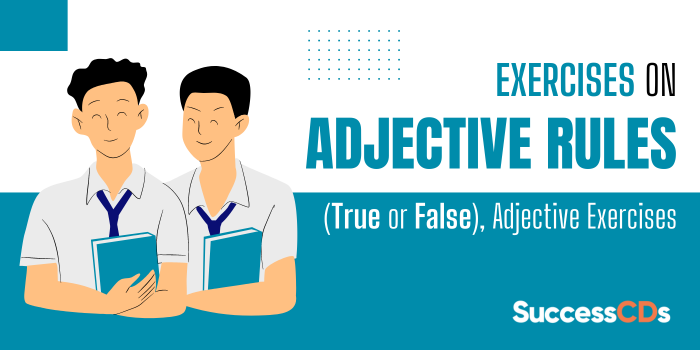
Adjective Exercises – Practise Quiz Exercises on Adjective Rules (True or False)
Exercises on Adjective Rules – Are you ready to test your understanding of English grammar? Our True or False quiz on Adjectives is an excellent way to assess your knowledge! An adjective is a word that describes or modifies a noun or pronoun. Adjectives can indicate a noun’s quantity, quality, or extent, or specify it as distinct from something else. A true and false exercise on adjective rules is an effective way to test and reinforce understanding of how adjectives function in sentences. Let’s dive in and explore the fascinating world of adjectives!
State whether the statement is true or false
Conclusion:
Mastering the rules of adjectives is crucial for effective communication, as adjectives add detail and depth to our descriptions. Understanding how to use adjectives correctly whether in terms of their order, comparison, or agreement with nouns, helps create clear, vivid, and grammatically sound sentences.Through regular practice, we improve both our writing and speaking abilities, enabling us to express ideas more accurately and creatively. Keep honing these skills, and soon applying adjective rules will become second nature in your language use.